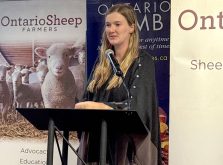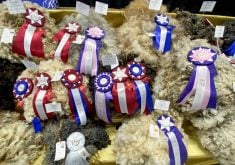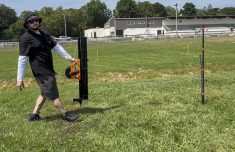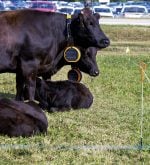A producer survey has closed that will help inform the National Farm Animal Care Council’s update of the sheep code of practice.
The council initiated an update to the Code of Practice for the Care and Handling of Sheep last year, although work didn’t get underway until April.
- Why it matters: Sheep are among several livestock species that will get a NFACC code update.
The codes for beef cattle, horses, pigs and poultry are also being updated and the pullet and layer code is being amended.
On July 4, the NFACC and Canadian Sheep Federation announced a survey as part of the process, designed to examine animal welfare concerns. Input received will inform the code development committee as members consider changes to include in the update. The survey was open until July 25 at nfacc.ca.
Read Also
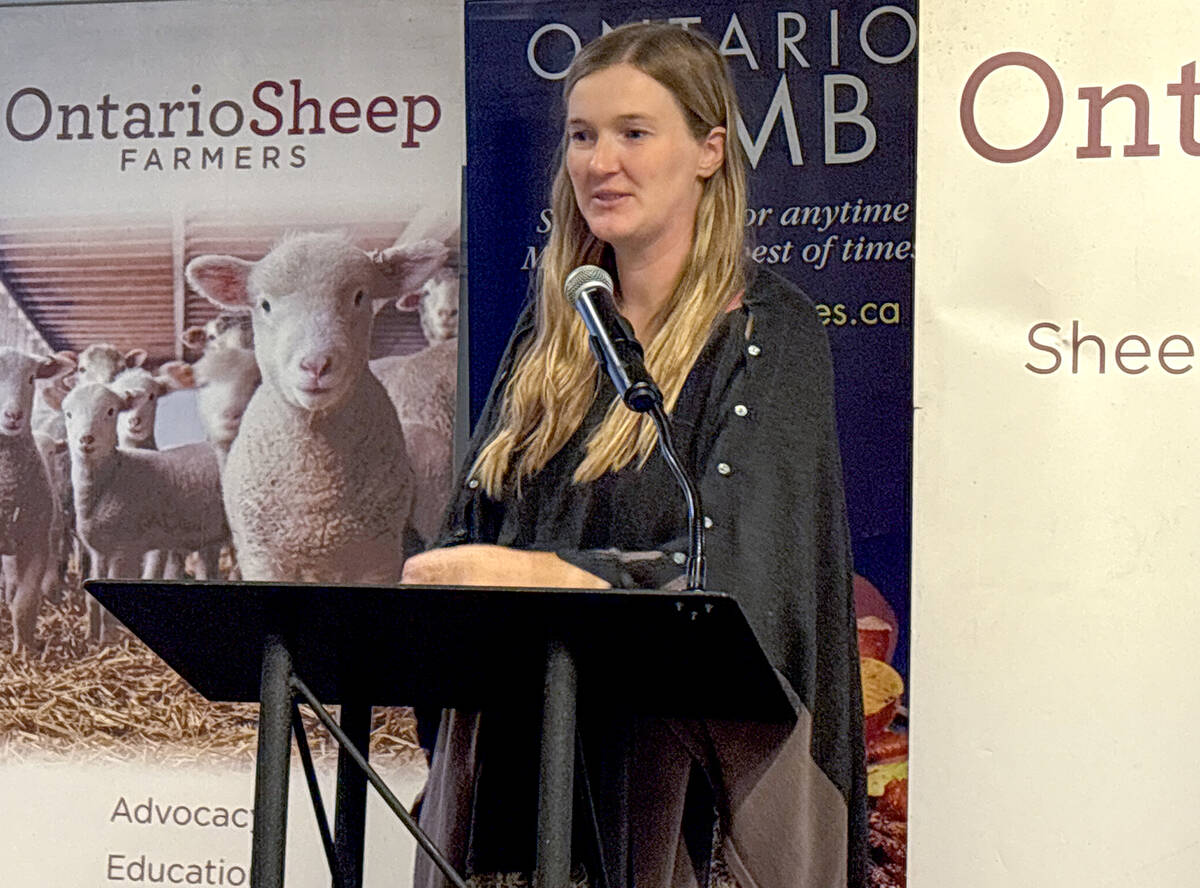
Footflats Farm recognized with Ontario Sheep Farmers’ DLF Pasture Award
Gayla Bonham-Carter and Scott Bade, of Footflats Farm, win the Ontario Sheep Farmers’ 2025 DLF Ontario Pasture Award for their pasture management and strategies to maximize production per acre.
Once complete, the updated code will outline standards for the production of market lambs, breeding stock, milk and wool for the next 10 years. The sheep code was last updated in 2013.
“Canadian sheep farmers are dedicated to providing the best life possible for all classes of sheep in their care,” said Fred Baker, Canadian Sheep Federation board member and chair of the code development committee.
“With emerging technologies and changes to production practices, it is time to use a science-informed process to revise and rewrite the Code of Practice for the Care and Handling of Sheep.”
The NFACC’s membership includes government, farmers and animal welfare groups. Developed codes provide guidance for the care and handling of farm animals and reflect Canada’s understanding of animal care requirements.
Sarah Brien, general manager of the Canadian Sheep Breeders’ Association, said she is pleased that people from different industries and interest groups will have their voices heard when it comes to code changes.
“That’s really promising, because we do love to see everyone being able to voice their concerns or their comments and areas of interest that they think should be in the code,” she said.
“The code is used as a comprehensive base for when you really get down to the dos and don’ts of sheep farming and what’s best for the animals.”
The current code is comprehensive, touching on all areas of sheep management and animal welfare, she said. Clarity in the new code will be key, she added, since the industry is growing.
“I think something we’re looking for moving forward is … consistency … and providing more detail within the requirements of the recommendations – not one area specifically, but providing a comprehensive code for people who might be entering the sheep industry so that they have more of a baseline for what is expected when it comes to sheep husbandry.”
Every livestock code is updated on a 10-year basis, but codes are also reviewed every five years to determine whether changes are needed sooner, said Canadian Sheep Federation executive director Corlena Patterson.
“It brings a really diverse group of stakeholders around,” Patterson said. “Your review gives that whole group of people an opportunity to just do a refresh of what’s in the code and weigh in on whether or not the code can wait the next five years for that full update or suggest alternatively if an intermediate update is required.”
The last five-year review for the sheep code was delayed, according to the NFACC website, and was not complete until 2020. At the time of that review, it was decided a full update could wait until the end of the decade-long cycle.
According to a timeline posted to the NFACC website, the organization plans to have the new sheep code complete by March 2027.
– With files from Alexis Kienlen






